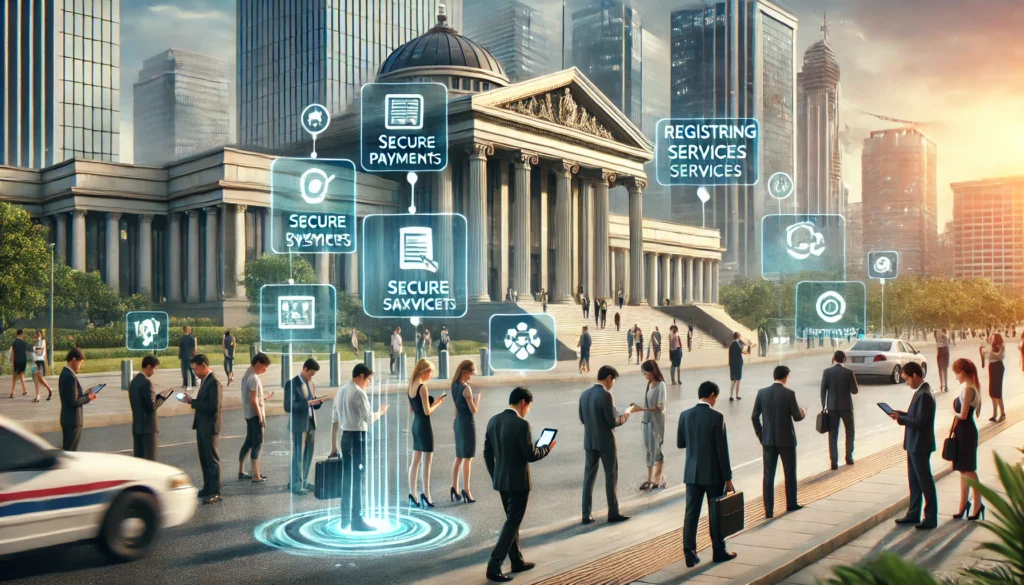Mobile apps are transforming how state governments operate, bridging the gap between governance and the public. These solutions streamline services, enhance transparency, and make interactions more user-friendly. By embracing mobile technology, governments can address citizen needs effectively, offering real-time updates and easy access to essential information.
Leveraging mobile apps for state government technology solutions fosters efficiency in governance. Mobile platforms enable seamless communication, reduce bureaucratic delays, and ensure public services are accessible to all. Governments can use these apps for various purposes, such as tax payments, public safety alerts, and voter registration, making the entire system more citizen-centric.
By integrating mobile apps for state government technology solutions, authorities can meet modern demands, ensuring adaptability, innovation, and improved service delivery. This approach not only enhances public trust but also sets the foundation for a digitally connected governance ecosystem.
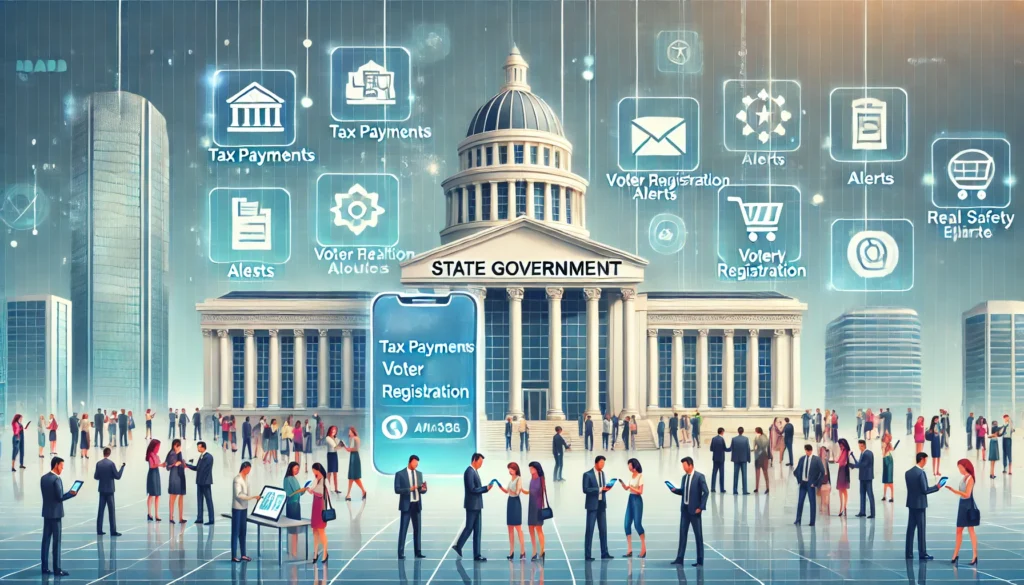
Role of Mobile Apps in State Government Technology
Mobile Apps Bridge the Gap Between Citizens and Government Services
- Enhanced Accessibility: Mobile apps provide citizens with 24/7 access to essential government services, eliminating the need for physical visits to government offices.
- Real-Time Updates: Notifications about policy changes, public announcements, or emergency alerts can be delivered directly to citizens.
- Citizen Engagement: Through interactive features like feedback forms and surveys, governments can better understand public needs.
Benefits of Digital Transformation in State Governance
- Improved Efficiency: Automating administrative tasks with mobile apps reduces paperwork and speeds up processes.
- Cost-Effectiveness: Digital solutions help save resources by minimizing manual labor and operational costs.
- Transparency and Accountability: Citizens can track their service requests, ensuring greater transparency in governance.
Key Features of Mobile Apps for State Government Technology Solutions
User-Friendly Interfaces for Citizens
Mobile apps for state government technology solutions are designed with intuitive and user-friendly interfaces. These interfaces ensure that citizens can navigate effortlessly, access services, and interact with government resources efficiently.
Real-Time Access to Government Information
Providing real-time access to government information is a cornerstone of mobile apps for state government technology solutions. Citizens can stay updated on policies, announcements, and public services at their convenience.
Secure and Transparent Payment Gateways
Mobile apps for state government technology solutions prioritize secure and transparent payment gateways. These systems enable users to complete transactions confidently, safeguarding sensitive data and promoting trust in digital services.
Tracking and Reporting Functionalities
Efficient tracking and reporting functionalities are integral to mobile apps for state government technology solutions. They allow users to monitor applications, file reports, and stay informed about the status of their requests.
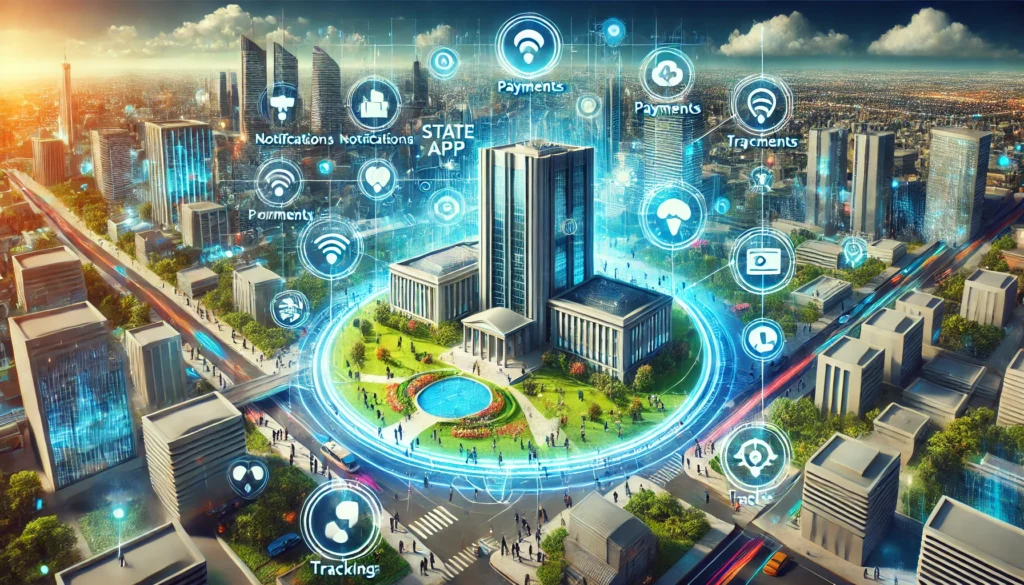
Examples of State Government Mobile Apps
Successful Apps in Transportation
State governments have embraced mobile apps for state government technology solutions to improve transportation systems. Apps like real-time public transit trackers, road condition updates, and electronic toll payment systems showcase efficiency and convenience for commuters.
Health Sector Innovations
In healthcare, many states have introduced apps for citizens to schedule vaccinations, access medical records, and find nearby health services. These mobile apps for state government technology solutions enhance public health outreach and provide critical information in emergencies.
Advancements in Education
State-run education apps are transforming learning through features like online classrooms, exam schedules, and educational resources. These mobile apps for state government technology solutions cater to both students and teachers, bridging gaps in education access.
Case Studies Showcasing Innovation in Mobile Technology
Several states have demonstrated success with unique app initiatives. For instance, one state developed an app for emergency management, integrating real-time alerts, evacuation maps, and communication tools. These mobile apps for state government technology solutions exemplify how innovation can address citizen needs effectively.
Benefits of Mobile Apps in State Governance
Citizen-Centric Benefits
Enhanced Accessibility to Government Schemes and Services
Mobile apps for state government technology solutions provide seamless access to essential services. Citizens can easily apply for schemes, track applications, and get updates in real time, ensuring convenience and transparency.
Real-Time Grievance Redressal
With mobile apps for state government technology solutions, grievances can be reported instantly, enabling faster resolution. This citizen-centric approach fosters trust and accountability.
Administrative Advantages
Improved Efficiency in Resource Management
Mobile apps for state government technology solutions optimize resource allocation by providing real-time data and insights. It enables administrators to make informed decisions and enhance productivity.
Streamlined Communication Between Departments
These apps facilitate smooth communication across government departments, reducing delays and improving coordination. This technological advancement ensures efficient execution of policies and programs.
Mobile apps for state government technology solutions are transforming governance, making it more accessible, efficient, and citizen-friendly. Their implementation is a step toward a smarter, digitally empowered government.
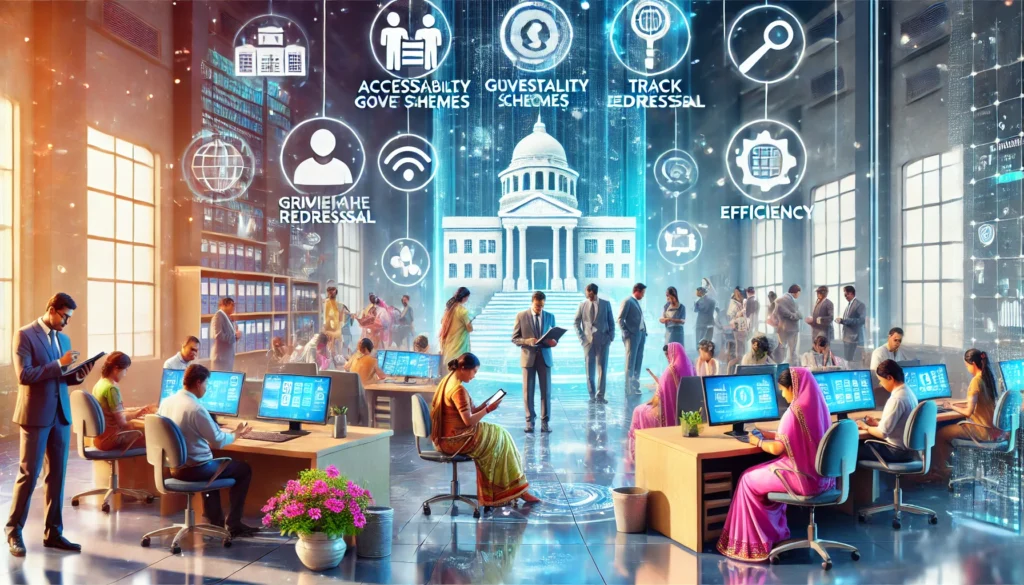
Challenges in Implementing Mobile Apps for State Government Technology Solutions
Technical Challenges in Mobile Apps for State Government Technology Solutions
Integration with Existing Systems
Integrating mobile apps with legacy systems used by state governments can be complex. Ensuring compatibility while maintaining efficiency is a significant challenge.
Data Security and Privacy Concerns
Mobile apps for state government technology solutions must adhere to stringent data protection regulations to safeguard sensitive information. Managing secure data storage and preventing breaches is essential.
Social Challenges in Mobile Apps for State Government Technology Solutions
Digital Literacy Gaps
Many citizens may lack the digital skills required to use mobile apps effectively. Bridging this gap is critical for the successful adoption of state government technology solutions.
Trust Issues in Using Mobile Technology
Some users may hesitate to adopt mobile apps due to concerns about data misuse or lack of transparency. Building trust is vital for broader acceptance of mobile apps for state government technology solutions.
Future of Mobile Apps in State Government Technology
Emerging Trends Like AI in Mobile Apps for State Government Technology Solutions
Artificial Intelligence (AI) is revolutionizing governance by enabling data-driven decision-making, predictive analytics, and improved citizen engagement. Mobile apps with AI integration offer personalized experiences, faster response times, and streamlined operations.
IoT Enhancements in Mobile Apps for State Government Technology Solutions
The Internet of Things (IoT) facilitates real-time monitoring and connectivity. State governments are leveraging IoT-enabled apps for infrastructure management, public safety, and resource optimization. These apps ensure seamless coordination between devices and systems.
Blockchain’s Role in Mobile Apps for State Government Technology Solutions
Blockchain technology ensures transparency, security, and accountability in government operations. Mobile apps incorporating blockchain provide secure document sharing, fraud prevention, and efficient public record management.
Vision for Smart Governance Through Mobile Apps for State Government Technology Solutions
The future lies in smart governance powered by innovative mobile applications. These solutions bridge the gap between citizens and government, making public services more accessible, efficient, and responsive. By adopting cutting-edge technologies, state governments can transform service delivery and foster trust among citizens.
This structured approach ensures comprehensive coverage of your focus keyword while presenting the content in a reader-friendly format.
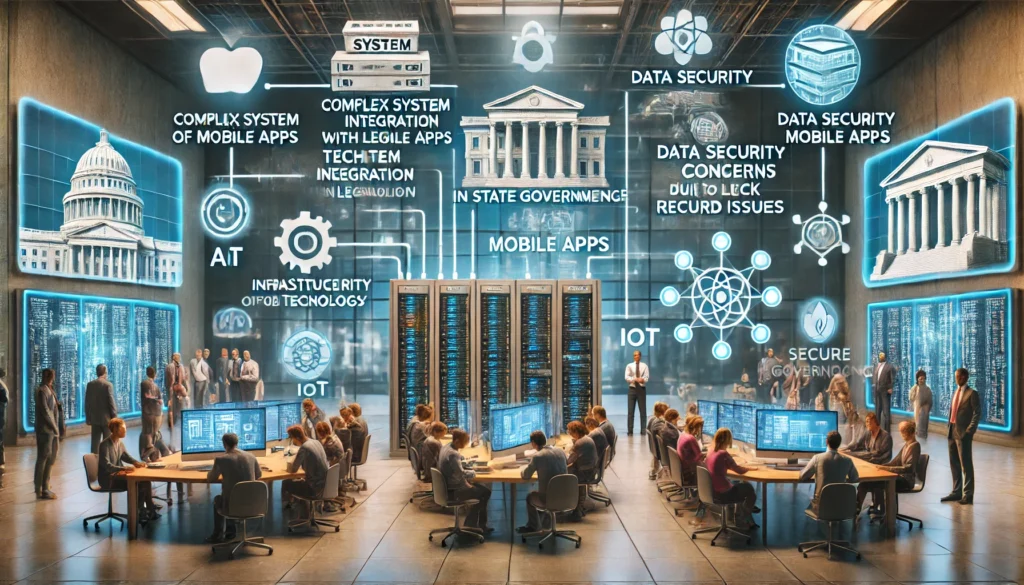
Conclusion
Mobile apps have revolutionized state government technology by streamlining processes, enhancing accessibility, and fostering real-time communication between citizens and administrations. Their ability to deliver tailored, efficient services has the transformative potential to bridge gaps, improve transparency, and create a more citizen-centric governance model.
Embracing innovative mobile solutions is no longer optional but essential for state governments aiming to meet the evolving needs of their constituents. By adopting these technologies, governments can ensure not only operational efficiency but also the active participation and trust of the public they serve. The future of governance lies in leveraging such tools to create smarter, more responsive, and inclusive societies.
FAQs
Q: How do mobile apps improve state government technology?
A: Mobile apps simplify access to services, enhance efficiency, and foster transparency in state governance.
Q: What features are essential in state government mobile apps?
A: Key features include real-time updates, secure transactions, and user-friendly interfaces.
Q: What challenges do state governments face in adopting mobile apps?
A: Challenges include data security concerns, digital literacy gaps, and system integration issues.
Q: Are mobile apps the future of state government technology?
A: Yes, with innovations like AI and IoT, mobile apps are paving the way for smart governance.
Q: Can citizens trust mobile apps for government services?
A: Yes, with proper security measures and transparency, citizens can trust these apps for efficient services.

